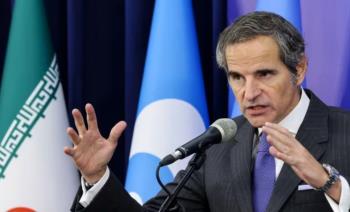Alwaght- These days, one of the biggest human congregations, or perhaps the world's largest religious cermoney is underway. Pilgrims from around the globe travel to a holy place in the heart of the hot and exhausting Iraqi desert to mourn the saddest and most heroic death in history, making the mourning cermoney as unique as the Karbala incident in the history.
The Arbaeen procession, which is met with increasing enthusiasm and welcome every year, this year, despite the problems caused by the lack of necessary infrastructure and services in Iraq, is being held more magnificently than ever, leaving the adversaries of Islamic ummah and its unity, anti-oppression discourse, and indomitablity in wonder and speechless.
The Western-Wahhabi-Israeli media that are antipathetic to the Islamic values are highlighting the shortages in Iraq's infrastructures causing problems to the pilgrims to damage the image of this spiritual voyage in the people's eyes and also dissuade millions of people from making this travel and joining this millions congregation.
But what is ignored in these media outlets' shallow and doomed-to-fail planning is the different nature of this journey from the ordinary tourist travels in which people explore a place for material enjoyment and entertainment and seek the best residence, transportation, and food.
There is no doubt that all, and specifically the Iraqi government, have a duty to mobilize their resources to provide security and comfort for the pilgrims. However, the pilgrims of Karbala from centuries ago made their journey while aware of the hardships and problems in their way. Even more, they were aware of the security dangers. The lovers of Imam Hussein, for experiencing the plights the Prophet Muhammad's grandson and his companions underwent, not only are not afraid of the difficulties, but also embrace them as a benefit of this spiritual travel. Many of the pilgrims experience this travel for several times, every time more enthusiastic about the great cermoney. There are historical stories that talk about a ban with hand cutting punishment for the Shiites traveling to visit Imam Hussein holy shrine under the rule of the Abbasid Caliph Al-Mutawakkil. But the punishment failed to make a check to the holy journey. Under Saddam's regime, Arbaeen march was banned, too, and the pilgrims were dealt with violently. But none of these bans managed to set up an obstacle ahead of the congregation and its boom.
Although the pilgrims have the least expectation of welfare amenities during their trek to Karbala, the people of Iraq provide to them whatever they can. During the Arbaeen days, the political and sectarian differences give place to brotherhood, humanity, and generosity in Iraq. Those who make this journey can feel this with their heart.



























